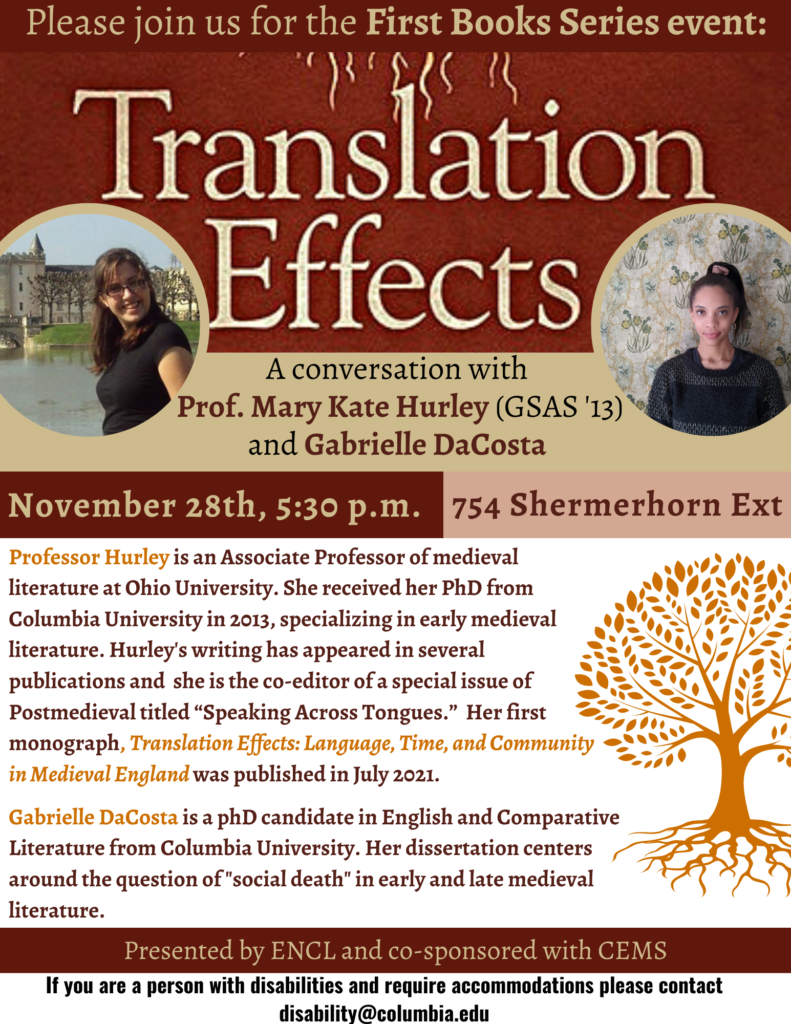Chair of Nordic History, Universität Greifswald 02-03.02.2023
Colonial Entanglements and the Medieval Nordic World: Tensions, Nordic Colonialism and Indigeneity
For livestream link go to: https://geschichte.uni-greifswald.de/ng-tag/
02-03.02.2023
Location: Konferenzraum, Domstraße 11 (Main University building), 17489 Greifswald
Registration and link for streaming: tba
Thursday, 02 February
09:00-09:30 Introduction and Welcome
Prof. Dr Cordelia Heß (Greifswald)
09:30-10:30 Indigenous methods
Dr Timothy Bourns (London): “Can we access a counter-narrative to the Vínland sagas through Kaladlit okalluktualliait?”
Dr Keith Ruiter (Suffolk): “What do Windigos Have to Do with Vikings?: Seeing Early Scandinavian Legalism with Two Eyes”
11:00-12:00 Colonial medievalisms I
Hannah Armstrong (York): “Beyond ‘Lost’ White Communities: Kalaallit Nunaat, Norse medievalisms, and the Indigenous Turn”
Jay Lalonde (New Brunswick): “‘… there is a strong leaven of the old Norse blood in nearly all of us’; Settler Colonialism and the Vínland Mythology”
12:00-13:00 Colonial medievalisms II
Dr Gwendolyne Knight (Stockholm): “Magical Stereotypes and Lived Realities in Medieval Sápmi”
Dr Christina Lentz (Tromsø): “Colonialism 2.0? Perspectives on medieval history in Norwegian textbooks”
14:30-15:30 Crusades
Dr Thomas Morcom (Oslo): “Raider, Crusader, Far-Traveller? The Complexity of Old Norse Depictions of the Expedition of Sigurðr jórsalafari”
Dr Sabine Walther (Bonn): “The Baltic crusades in an Icelandic mirror? The case of Yngvar the Far-Travelled”
16:00-17:30 Keynote
Dr Laura Gazzoli (Wien): “From the beginning? Colonial entanglements in the far north and the Baltic and the formation of Scandinavian identities, c. 800–c. 1100”
Friday, 03 February
10:00-11:00 Spatial dimensions of colonialism
Basil Arnould Price (York): “The King and His Skattland: A Postcolonial Approach to Post-Commonwealth Iceland”
Prof. Thomas Wallerström (Trondheim): “The Gulf of Bothnia, 1300–1621, as a ‘third space’”
11:00-12:00 Colonial semantics
Carina Damm (Leipzig): “Sámi and Bjarmar as Brokers in the Medieval Fur Trade”
Prof. Alexandra Petrulevich (Uppsala): “The East Norse Echo: Swedish Medieval and Post-medieval Discourse on finnar, kareler and lappar”
13:30-14:30 Religion
Dr Christian Koch Madsen (Nuuk): “Far from Rome – Religious Beliefs and Otherness of the Medieval Greenland Norse”
Dr Solveig Marie Wang (Greifswald): “Christianity, Conversion and the Saami in the Medieval Period”
14:30-15:30 Panel discussion and conclusion
Organisers: Prof. Dr Cordelia Heß, Prof. Dr Clemens Räthel, Dr Solveig Marie Wang, Erik Wolf. For any enquiries please contact: wangs@uni-greifswald.de.

